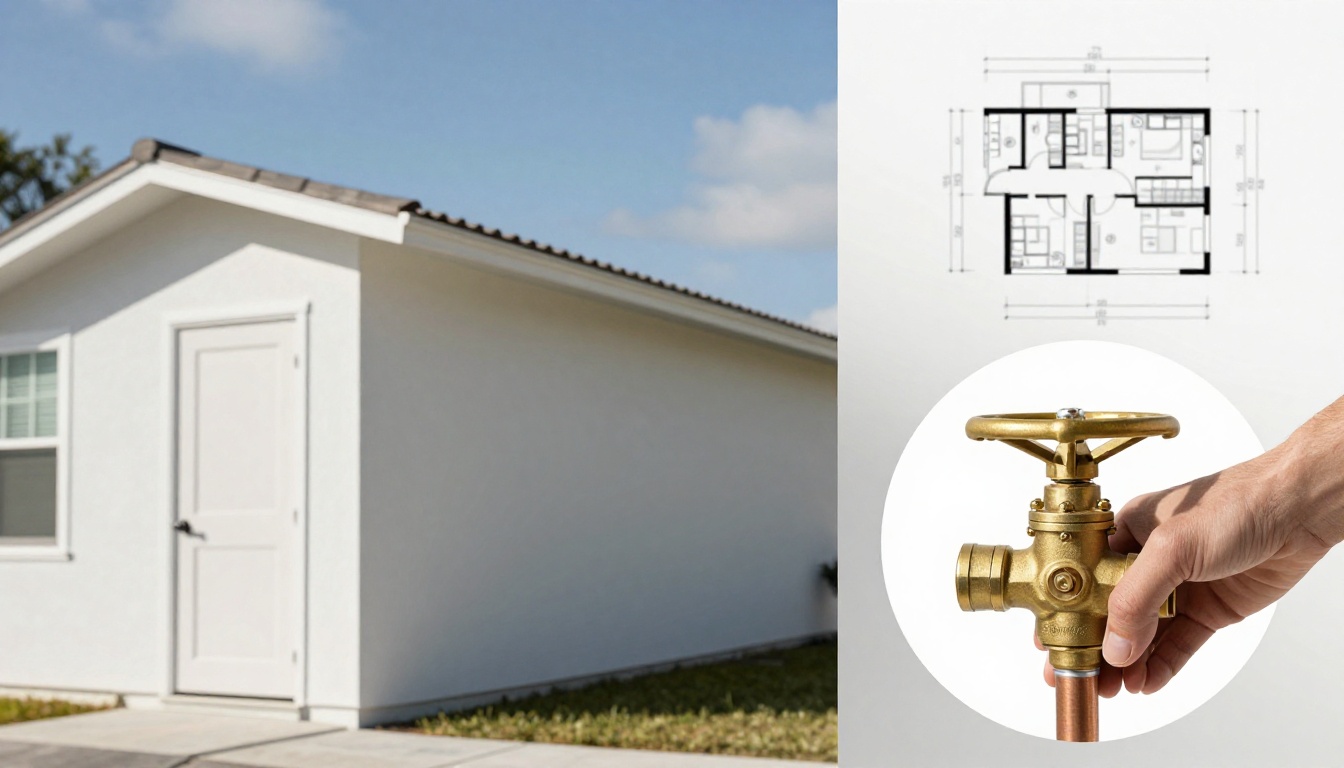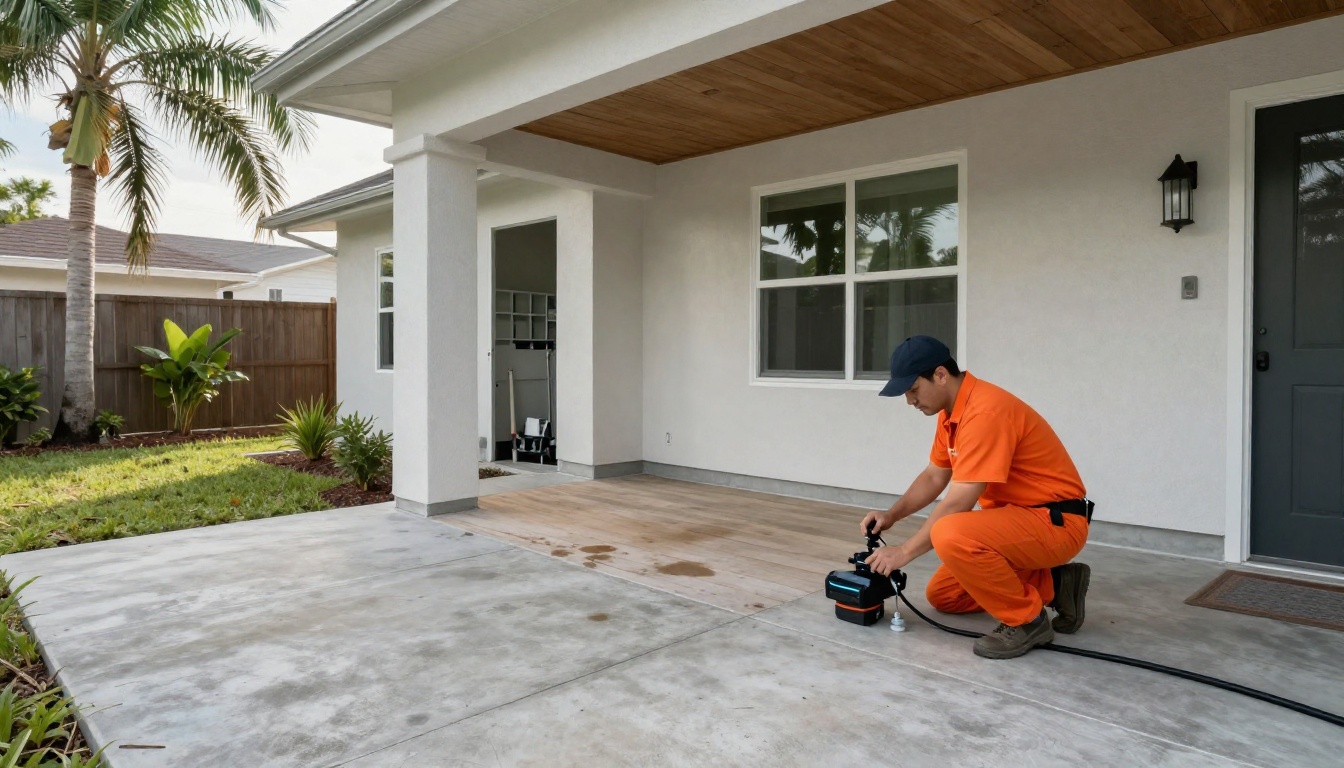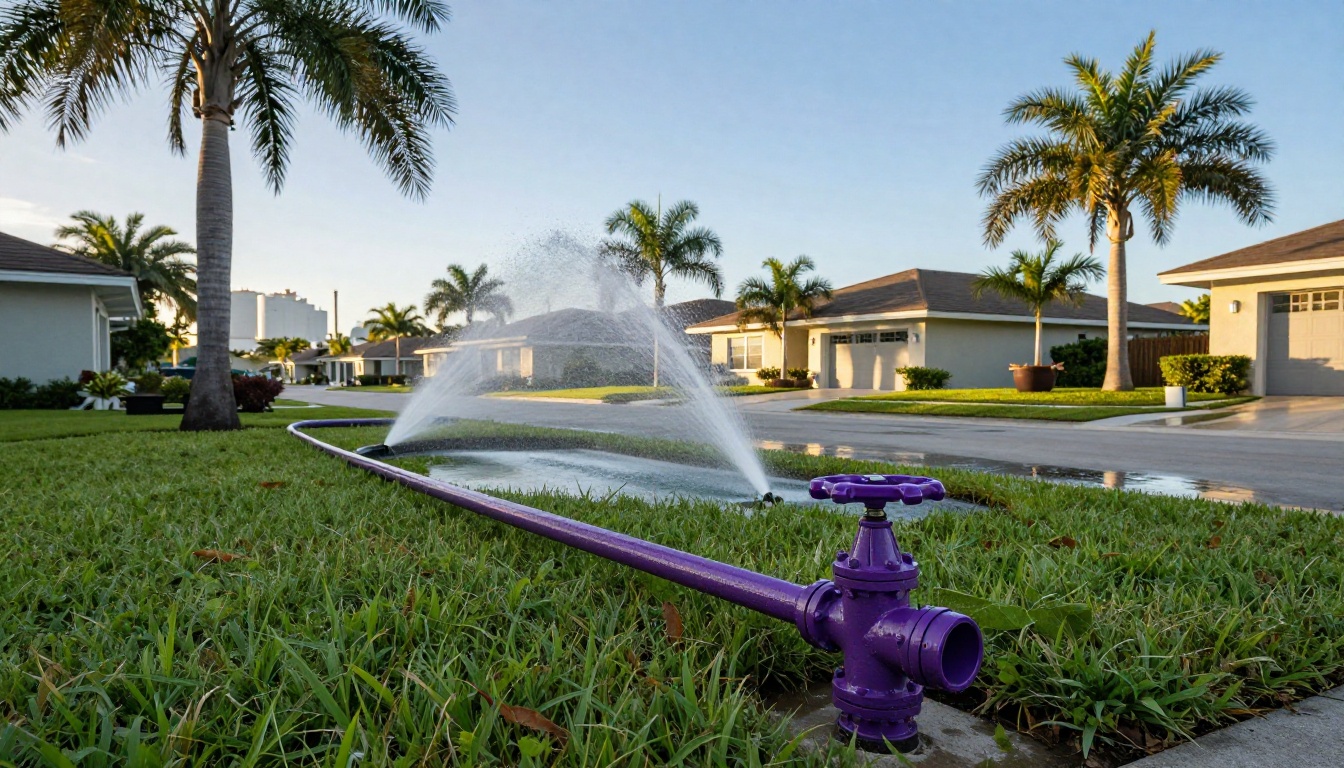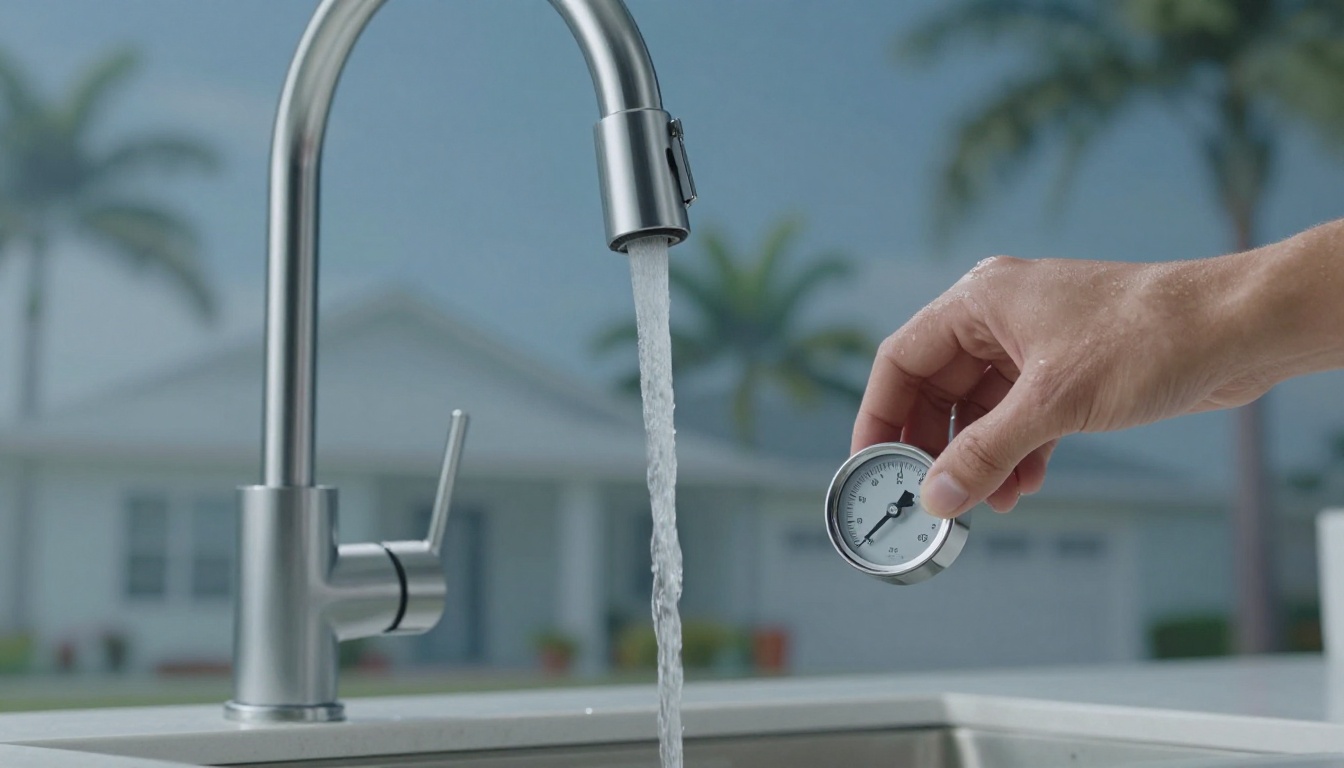A Seasonal Guide to Lawn Irrigation in Cape Coral
A Seasonal Guide to Lawn Irrigation in Cape Coral
Understanding Cape Coral’s Watering Regulations
Cape Coral has specific watering regulations designed to conserve water and ensure healthy lawns. Residents are allowed to water their lawns twice per week, with schedules based on house numbers. For instance, homes with odd-numbered addresses can water on Wednesdays and Saturdays, while even-numbered addresses water on Thursdays and Sundays. These rules also specify that irrigation should occur during designated hours, typically between 4 a.m. and 10 a.m., to minimize evaporation. Understanding these guidelines is crucial for compliance and maintaining your lawn's health.
New lawns, however, receive special consideration under the city’s regulations. They are often permitted more frequent watering during their establishment phase to help roots take hold. Non-compliance with the rules can lead to fines or other penalties, including citations for violations like watering on prohibited days or outside allowed hours. It’s important to stay informed about these regulations to avoid unnecessary consequences while keeping your lawn thriving. Following these rules ensures not only a green yard but also supports the community’s water conservation efforts.
Seasonal Climate Patterns and Their Impact on Irrigation
Cape Coral experiences distinct wet and dry seasons, which significantly affect lawn irrigation needs. The wet season, typically from June to September, brings heavy rainfall that reduces the need for supplemental watering. During this period, lawns may require little to no irrigation, as natural precipitation often meets or exceeds the grass’s moisture requirements. This seasonal shift highlights the importance of adjusting irrigation practices to match weather patterns.
In contrast, the dry season, spanning October to May, sees reduced rainfall, making irrigation essential to maintain healthy lawns. The cooler temperatures during winter months further decrease water needs, but prolonged dry spells can still stress grass if not properly managed. By understanding how Cape Coral’s climate influences water requirements, homeowners can tailor their irrigation schedules to promote optimal growth while conserving resources. Adapting to these changes is key to sustainable lawn care.
Recommended Watering Practices for Each Season
Spring is a transitional season in Cape Coral, marked by moderate rainfall and increasing temperatures. During this time, lawns typically need about 1 inch of water per week, supplemented by irrigation if rainfall falls short. Watering deeply and infrequently encourages deep root growth, which prepares grass for the hotter summer months. As spring progresses, it’s wise to monitor rainfall and adjust sprinkler timers accordingly to avoid overwatering.
Summer brings higher rainfall and rapid grass growth, requiring careful attention to avoid excess moisture. While natural precipitation often meets most of the lawn’s needs, supplemental watering may still be necessary during dry spells. Aim to water early in the morning to reduce evaporation and fungal risks. Adjusting irrigation systems to account for frequent storms helps prevent issues like pooling or runoff, ensuring your lawn stays healthy without wasting water.
Winter in Cape Coral is drier and cooler, leading to reduced water requirements. Lawns generally need less than 1 inch of water per week during this season, as grass growth slows and evaporation rates drop. Watering once per week or even less may suffice, depending on rainfall. It’s also important to avoid overwatering during this time, as excessive moisture can lead to disease and root problems. By scaling back irrigation in winter, you can conserve water while maintaining a resilient lawn.
Efficient Irrigation Techniques and Technologies
Maintaining an efficient irrigation system is vital for both water conservation and lawn health. Regularly inspecting sprinklers for broken heads, leaks, or misalignment ensures even coverage and prevents water waste. Installing automatic timers can simplify the process by automating watering schedules, reducing the risk of human error. These tools allow homeowners to set precise watering times that align with local regulations and seasonal needs.
Advancements in irrigation technology, such as smart controllers and drip systems , offer additional benefits. Smart controllers use real-time weather data to adjust watering schedules, preventing unnecessary irrigation during rainy periods. Drip irrigation delivers water directly to plant roots, minimizing evaporation and runoff. By adopting these innovations, homeowners can maximize water efficiency while promoting a lush, healthy landscape. Investing in modern solutions not only saves water but also enhances long-term lawn care success.
Adapting to Water Restrictions and Drought Conditions
During periods of drought or heightened water scarcity, Cape Coral may impose stricter watering limitations to conserve resources. These measures can include reducing irrigation frequency or enforcing hand-watering allowances for essential areas. For example, the Modified Phase IV Water Shortage order in certain parts of the city restricts lawn watering to once per week or less. Staying informed about these changes is critical to maintaining compliance while protecting your lawn.
To adapt to water restrictions, prioritize watering methods that make the most of limited resources. Hand watering allows for targeted hydration of stressed areas, while mulching helps retain soil moisture. Additionally, raising mower blades to leave grass taller can reduce evaporation and shade roots, promoting resilience during dry spells. By implementing these strategies, homeowners can keep their lawns healthy even under challenging conditions. Thoughtful adjustments ensure both compliance and sustainability.
Signs of Overwatering and Underwatering
Recognizing signs of overwatering and underwatering is essential for maintaining a balanced irrigation routine. Overwatered lawns often exhibit symptoms like yellowing grass, spongy soil, or persistent puddles. Excess moisture creates an environment prone to fungal diseases and shallow root systems, which weaken the lawn over time. Conversely, underwatered grass may appear brown, brittle, or show signs of wilting, indicating insufficient hydration for healthy growth.
To address these issues, conduct simple tests like checking soil moisture levels with a screwdriver or performing a “footprint test” to see if grass springs back after being stepped on. Adjusting irrigation schedules based on these observations helps restore balance. Regular monitoring ensures timely corrections, preventing long-term damage and promoting a vibrant, resilient lawn. Proper care starts with understanding your grass’s needs and responding accordingly.
Choosing the Right Grass and Plants for Cape Coral Lawns
Selecting the right grass and plants is a key step in creating a low-maintenance, water-efficient landscape in Cape Coral. Warm-season grasses like St. Augustine and Zoysia are well-suited to the region’s climate, offering drought tolerance and resistance to pests. These varieties thrive in Cape Coral’s sandy soil and can withstand seasonal fluctuations in rainfall. Choosing native grasses not only reduces irrigation needs but also supports local ecosystems.
Incorporating drought-tolerant plants and native species into landscaping further enhances water efficiency. Options like coontie palms, beach sunflowers, and muhly grass require minimal supplemental watering and add visual interest to outdoor spaces. By selecting plants adapted to Cape Coral’s unique conditions, homeowners can create beautiful, sustainable landscapes that conserve water and thrive year-round. Thoughtful plant choices contribute to both aesthetic appeal and environmental responsibility.
Soil Preparation and Mulching for Water Efficiency
Proper soil preparation plays a vital role in maximizing water efficiency for Cape Coral lawns. Aeration, composting, and other soil amendments improve drainage and nutrient retention, helping roots access moisture more effectively. Sandy soils, common in the area, benefit greatly from organic matter additions that enhance water-holding capacity. Preparing the soil before planting or overseeding ensures a strong foundation for healthy grass growth.
Mulching is another effective technique for conserving water and protecting plants. Applying a layer of mulch around shrubs, trees, and flower beds reduces evaporation, moderates soil temperature, and suppresses weeds. In Cape Coral’s fluctuating climate, mulch shields plants from extreme heat and dry spells while promoting steady moisture levels. Together, soil preparation and mulching create a resilient landscape that thrives with minimal irrigation. These practices are simple yet impactful steps toward sustainable lawn care.
Routine System Maintenance and Troubleshooting
Regular maintenance of your irrigation system is crucial for ensuring efficient water use and preventing costly repairs. Start by inspecting sprinkler heads for clogs, cracks, or misalignment , as these issues can cause uneven watering or leaks. Calibrating the system to deliver the right amount of water across all zones prevents dry patches and runoff. Addressing minor problems promptly avoids larger complications down the line.
Common signs of irrigation malfunctions include brown spots, soggy areas, or unusually high water bills. If you notice any of these issues, check for leaks in pipes or valves and recalibrate spray patterns. Basic troubleshooting steps, such as cleaning nozzles or replacing damaged components, often resolve the problem without professional assistance. However, if the issue persists, consulting a certified irrigation specialist ensures your system operates at peak performance. A well-maintained system supports both your lawn’s health and water conservation goals.
Understanding and Using Rain Sensors & Weather-Based Adjustments
Rain sensors are valuable tools for optimizing irrigation efficiency in Cape Coral. Installed on sprinkler systems , these devices automatically pause scheduled watering when sufficient rainfall is detected, preventing unnecessary irrigation. This feature not only conserves water but also helps homeowners comply with local ordinances that mandate rain sensor usage. Incorporating this technology into your system ensures smarter, more sustainable water management.
Weather-based controllers take efficiency a step further by using real-time data to adjust watering schedules. These systems factor in variables like temperature, humidity, and rainfall forecasts to determine precise irrigation needs. Manual overrides allow users to customize settings during unusual weather patterns or temporary restrictions. By leveraging rain sensors and weather-based adjustments, homeowners can achieve optimal lawn health while minimizing water waste. These innovations align perfectly with Cape Coral’s conservation goals.
Conserving Water: Tips for Sustainable Lawn Care
Water conservation is a cornerstone of responsible lawn care in Cape Coral, and several strategies can help reduce water demand. One effective approach is watering at night, preferably between 4 a.m. and 10 a.m., when evaporation rates are lowest. Proper mowing techniques, such as cutting grass to the recommended height for its species, also contribute to water savings by shading roots and reducing moisture loss. These practices support a healthy lawn while conserving precious resources.
Xeriscaping and other water-wise landscaping principles further enhance sustainability. Grouping plants with similar water needs, using permeable hardscaping materials, and limiting turf areas can significantly lower irrigation requirements. Lee County and the South Florida Water Management District recommend these methods to promote eco-friendly landscapes. By adopting these tips, homeowners can enjoy beautiful outdoor spaces while protecting Cape Coral’s water supply. Sustainable lawn care benefits both individuals and the community.
Local Resources and Where to Find Help
For guidance on lawn irrigation and water conservation, Cape Coral residents have access to a variety of local resources. The City of Cape Coral’s water website provides up-to-date information on watering regulations, conservation tips, and FAQs. Local extension services offer expert advice on plant selection, soil preparation, and efficient irrigation practices. Professional irrigation companies in the area can assist with system installation, maintenance, and troubleshooting. Leveraging these resources ensures you stay informed and compliant while achieving a thriving, water-efficient landscape.
Frequently Asked Questions
How often can I water my lawn in Cape Coral?
In Cape Coral, residential lawns are typically allowed to be watered twice per week, with specific days assigned based on house numbers. Odd-numbered addresses water on Wednesdays and Saturdays, while even-numbered addresses water on Thursdays and Sundays. During drought conditions or water shortage orders, these schedules may change to once-per-week or stricter limits. Staying informed about current regulations ensures compliance and supports community-wide water conservation efforts.
What are the best hours for lawn irrigation?
The best hours for lawn irrigation in Cape Coral are between 4 a.m. and 10 a.m. Watering during these early morning hours minimizes evaporation and allows grass to dry before nightfall, reducing the risk of fungal diseases. Daytime watering is discouraged due to higher evaporation rates and potential penalties for noncompliance with local ordinances. Adhering to these guidelines promotes efficient water use and a healthier lawn.
What should I do during water shortage orders or drought?
During water shortage orders or drought conditions, it’s important to adapt your lawn care practices to conserve water. Follow any temporary restrictions, such as reduced watering frequencies or hand-watering allowances, to prioritize essential hydration. Focus on maintaining high-traffic areas and newly planted vegetation while letting less critical zones go dormant. Using mulch and raising mower blades can help reduce water needs. By taking these steps, you can sustain your lawn’s health while supporting broader conservation efforts.
How much water does my lawn really need each week?
Your lawn generally requires about 1 to 1.5 inches of water per week during the active growing season, though this may vary based on grass type and weather conditions. In Cape Coral’s dry winter months, less water is typically needed. It’s important to account for rainfall when determining supplemental irrigation amounts, as overwatering can harm your lawn. Monitoring soil moisture and adjusting schedules accordingly ensures your grass receives the right amount of hydration year-round.
How can I spot and fix irrigation system problems?
Common signs of irrigation system problems include brown spots, soggy areas, or unexpectedly high water bills. To address these issues, first inspect sprinkler heads for clogs or misalignment and check for leaks in pipes or valves. Cleaning nozzles or replacing damaged components often resolves minor malfunctions. If problems persist despite basic troubleshooting, consult a professional irrigation technician for assistance. Regular maintenance and prompt repairs keep your system running efficiently.
Conclusion
Following Cape Coral’s irrigation rules and adapting practices through the seasons is essential for maintaining a healthy lawn while conserving water. By understanding local regulations, adjusting watering schedules to match climate patterns, and embracing efficient technologies like smart controllers , homeowners can achieve optimal results. These efforts not only benefit individual properties but also contribute to the region’s overall water conservation goals. Thoughtful irrigation practices ensure vibrant landscapes and sustainable resource management.
Taking practical steps outlined in this guide, such as proper soil preparation, mulching, and regular system maintenance , empowers homeowners to care for their lawns responsibly. Staying informed through local resources and sharing water-saving habits with neighbors fosters a community committed to preserving Cape Coral’s water supplies. Adapting to the area’s seasonal irrigation landscape guarantees healthy, beautiful lawns while safeguarding this vital resource for future generations.
Start implementing these strategies today to create a thriving, eco-friendly lawn that reflects your commitment to sustainability. Share what you’ve learned with friends and family to spread awareness and encourage collective action toward water conservation in Cape Coral.




Get a Free Estimate
Got a plumbing issue? We’re here to help! Whether you need emergency repairs, routine maintenance, or have a question about our services, our team is ready to assist you.
